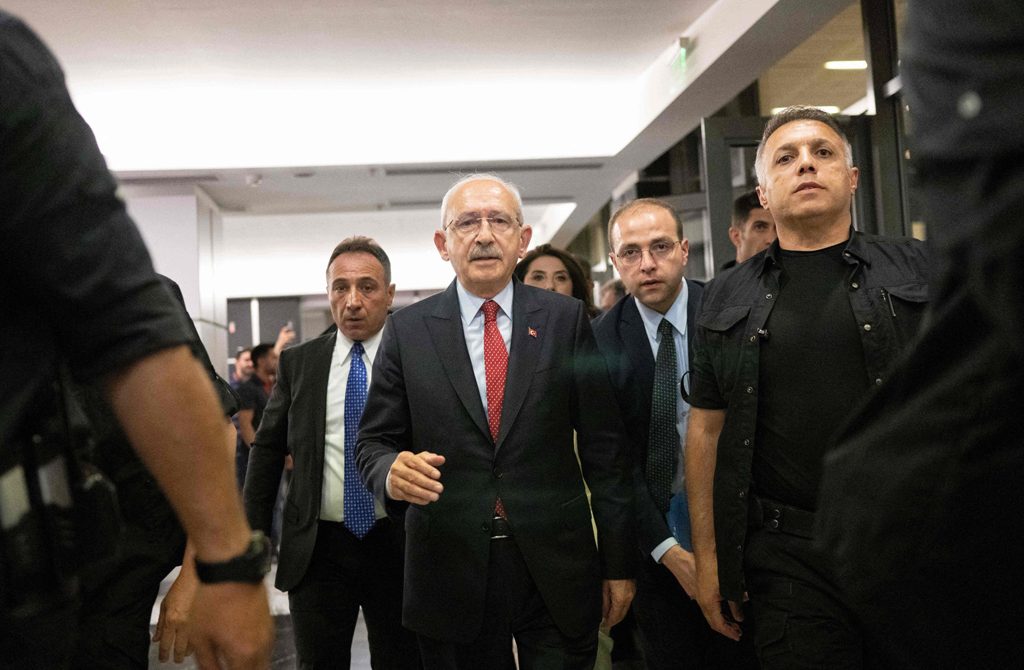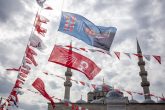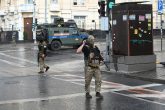Losing the May 2023 elections dragged Türkiye’s opposition parties into a crisis of “change” and “taking stock.” The leadership fight within the Republican People’s Party (CHP) continues to capture the Turkish people’s attention.
There is a tendency among CHP politicians to make assessments and accusations as opposed to just sarcastic statements. It would seem that the main opposition party will treat its defeat as a metaphorical elephant in a dark room where each person holds a different limb. As always, victory has many fathers and defeat has none.
Blame game
Right now, the opposition parties are merely playing the blame game. That’s why hardly anyone would be surprised to see Meral Akşener, the Good Party’s (IP) chairperson, state in public what many CHP politicians have been saying behind closed doors. It would seem that the CHP will waste the next four months with questions over potential candidates, the true meaning of change and the party congress’ timeline – not to mention a leadership contest.
Meanwhile, the Nation Alliance’s members and the pro-PKK Peoples’ Democratic Party (HDP)/Green Left Party (YSP) will experience turbulence due to efforts to take stock and express concerns related to the municipal elections.
What makes the opposition’s crisis even more significant is that President Recep Tayyip Erdoğan, who clinched reelection, kicked off his party’s municipal election campaign on May 28. He also urged his supporters to learn from what happened and renew themselves before the opposition tackled those issues – which fuels concern among the CHP’s mentors. Some of those experts highlight the problem of leadership, calling for Kemal Kılıçdaroğlu’s replacement with Imamoğlu.
Others demand an ideological overhaul. Accordingly, they both warn against the possibility of losing the municipal elections and attempt to help the opposition get back on its feet with the help of a new concept: “authoritarianism without opposition.”
That group of academics and journalists, who significantly contributed to the defeat of the opposition bloc and its candidate, used to criticize the government regarding “electoral authoritarianism.” This time around, they invented the term “authoritarianism without opposition” in an attempt to guide the opposition. Indeed, Imamoğlu has embraced the term “change” in an attempt to take advantage of it politically: “Where we find ourselves today goes beyond the aftermath of an election defeat. We must acknowledge that hopelessness is dragging Türkiye into a state of authoritarianism without opposition.”
Opposition’s effectiveness key for democracy
I understand why some would argue that “failure to change distances the opposition from the people” and warn against the possibility of losing the municipal elections. After all, the opposition’s effectiveness is key to our democracy’s well-being. That the presidential election ended in the second round and the opposition candidate received 48% of the vote attests to the election’s competitiveness. As a matter of fact, we witnessed how Türkiye’s neighbors appreciated the competitiveness of Turkish elections, the high turnout rate, and the level of election security. It is also important for opposition voters, who were convinced that they were going to win, to reflect on their defeat and demonstrate a high level of intellectual awareness.
Yet the discourse of “authoritarianism without opposition” resembles their preelection mistake: “electoral authoritarianism.” They fail to analyze properly the reasons behind Erdoğan’s success. They conveniently ignore that multiple opposition parties with different ideologies and inclinations could not present a shared vision to the electorate despite joining forces.
I would say that the opposition’s mentors need to engage in self-criticism – much like the main opposition party and its chairperson. Their eagerness to identify Erdoğan as “the other” instead of reflecting on their shortcomings amounts to intellectual helplessness.
It is understandable that they urge the opposition to recover from what happened since the ruling alliance is updating itself and the opposition might end up losing the municipal elections. Yet the claim that Erdoğan’s game plan is to establish an authoritarian regime without opposition represents a step too far.
Does Erdoğan really bear responsibility for the opposition’s crisis, too?



